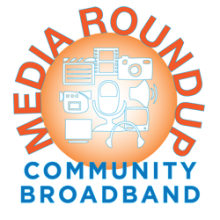Chris responds to President Obama’s endorsement of community networks on MPR's "Daily Circuit"
Minnesota Public Radio’s Daily Circuit (MPR) interviewed Chris about President Obama’s recent endorsment to end restrictions on states that limit local broadband authority. Chris and Danna Mackenzie, executive director of the Minnesota Office of Broadband Development, answered questions about what Obama’s announcement means for faster, cheaper, more reliable Internet for consumers.
Chris explained that it’s great to see federal government “getting it right” and championing the rights of local governments. He also discredits the argument about public money for Internet networks, and addresses why municipal approaches offer some of the wisest and most efficient use of taxpayer dollars.
You can listen to a 3-minute clip in the audio player below, or click the link to hear the entire interview: http://www.mprnews.org/story/2014/11/13/daily-circuit-net-neutrality



